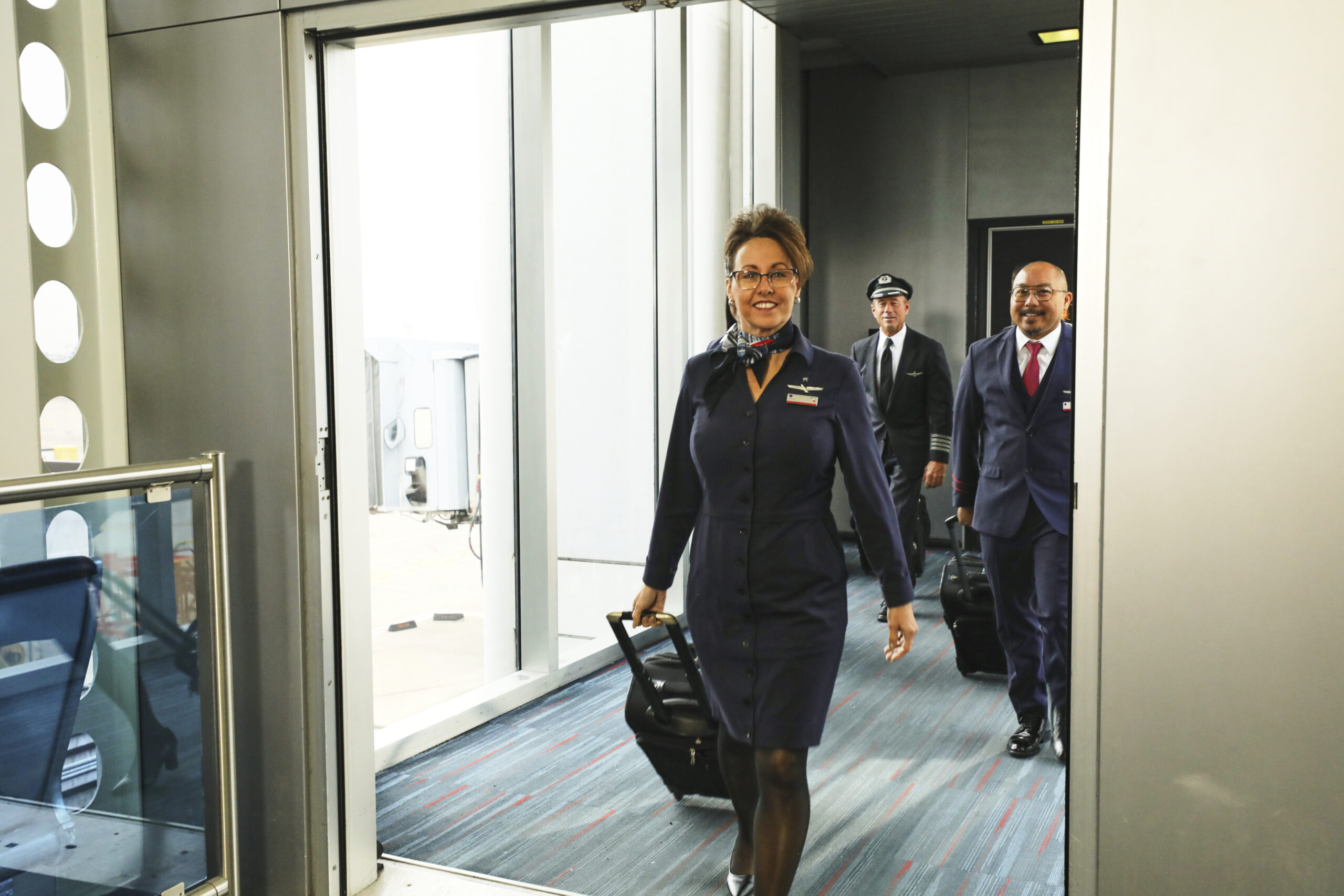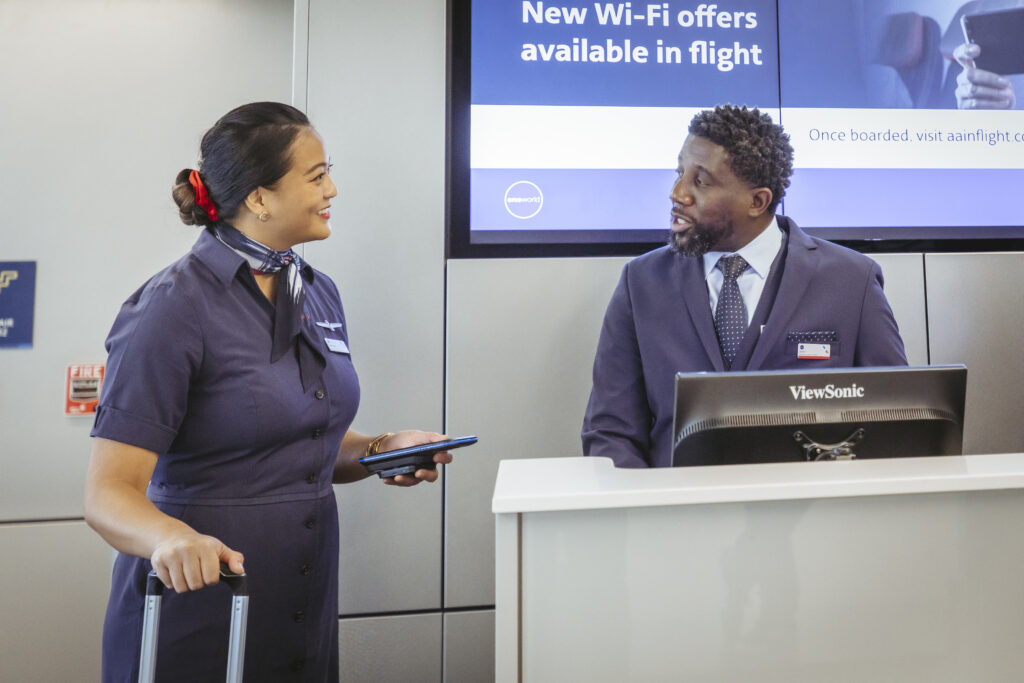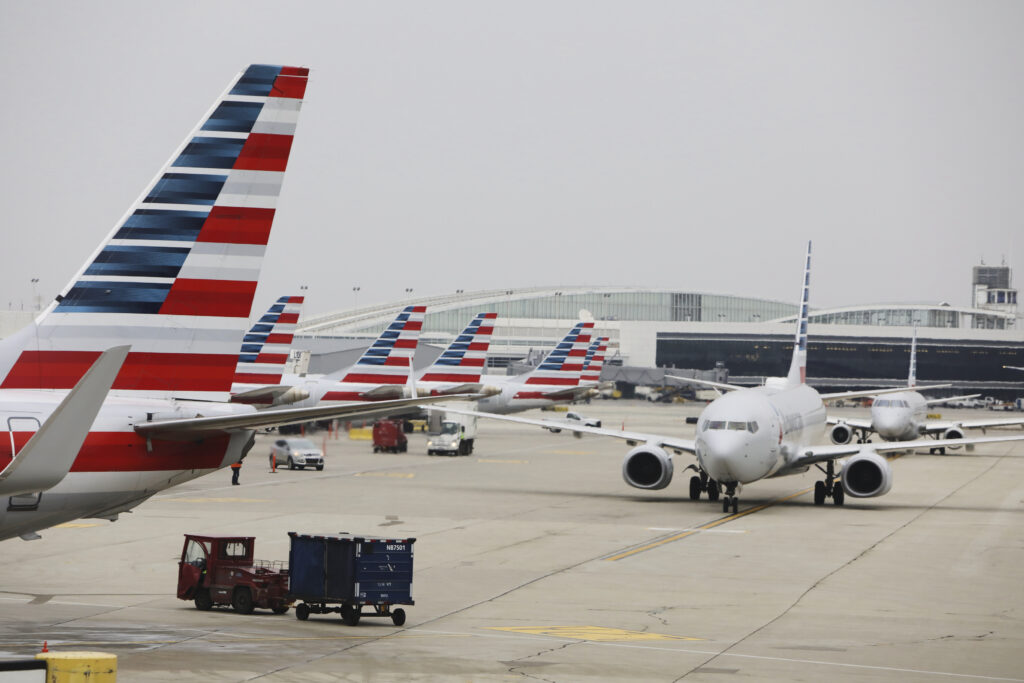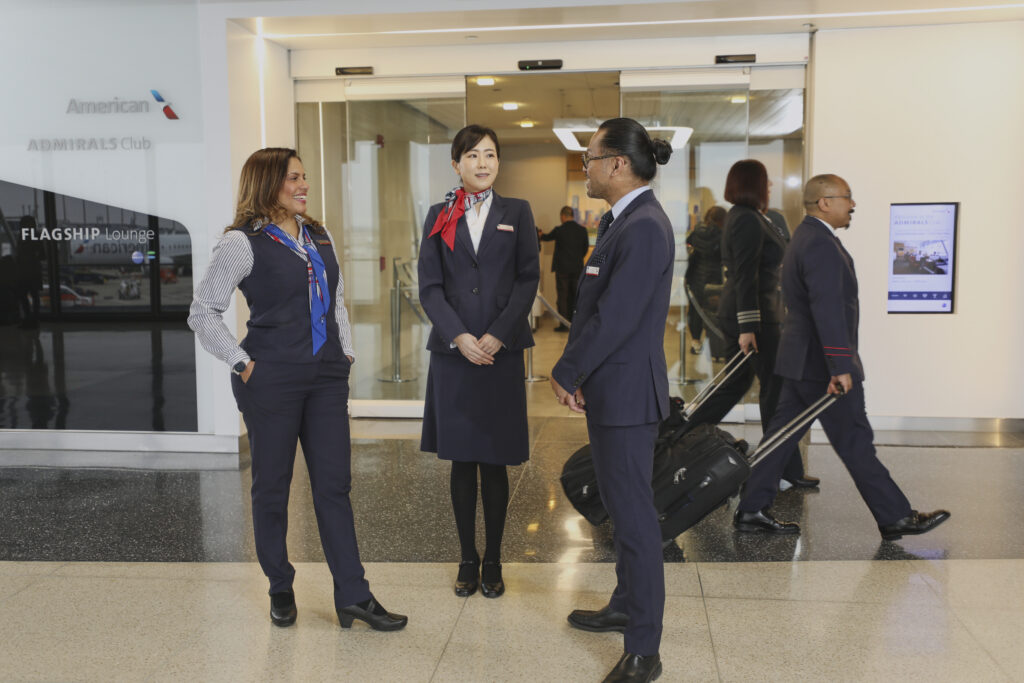Flight Attendant Strike? American Airlines Faces December Showdown
Holiday travel plans could be disrupted after contentious contract negotiations and rebuffed calls for substantial pay rises
by Lauren Smith
October 31, 2023

Photo: Courtesy of American Airlines
Talks between American Airlines and the Association of Professional Flight Attendants (APFA), which represents 26,000 AA flight attendants, began nearly five years ago in January 2019, before being paused during the coronavirus pandemic. Since negotiations resumed in August 2021, they’ve been unproductive, and federal mediators have recently come to the bargaining table to help the parties reach a deal.
Flight attendants are calling for an immediate 33 percent hike in wages to cover the cost of living increases since their pay was last adjusted in 2019, and then annual bumps to increase their pay by a total of 50 percent over the next four years. The initial increase would take the starting wage for an American Airlines flight attendant from $30.35 per hour to $40.37.

Photo: Courtesy of American Airlines
APFA is also calling for pay for work that is currently unpaid, better scheduling flexibility, retirement contributions from the airline that are in line with the rest of the industry, and a return to pre-pandemic staffing levels on flights.
The airline is offering an initial 11 percent pay rise, followed by incremental hikes of 2 percent over the next four years.
In August, American Airlines flight attendants voted overwhelmingly (99.47 percent) to authorize strike action, with a 93 percent turnout. “American’s flight attendants have made it clear that settling for anything other than an industry-leading agreement is not an option,” the union said in a statement.
As transportation workers, flight attendants fall under the Railway Labor Act and can’t walk out until the National Mediation Board (NMB) releases them and a 30-day cooling-off period elapses.

Photo: Courtesy of American Airlines
The APFA has announced that if American Airlines “fails to make substantial movement towards concluding these negotiations,” it will request that release on November 17, beginning a 30-day cooling-off period. American Airlines flight attendants could then walk out on December 17, during the busiest travel weeks of the year.
“Time’s up. At last week’s negotiations session, negotiators for American Airlines showed up with no response to our comprehensive economic and non-economic packages,” said Julie Hedrick, National President of APFA and a Los Angeles-based flight attendant. “Our flight attendants have overwhelmingly authorized a strike, and we will move the process forward and prepare for a strike if necessary.”
“The ball is firmly in management’s court,” she continued. “If American Airlines management has no change in position, simply put that in writing so we can move the process forward. If they don’t have a proposal, we have a deadline, and failure to meet that deadline will result in a request to the NMB to be released.”

Photo: Courtesy of American Airlines
The unions said that flight attendants would be on picket lines at airports on November 16, the day before its board of directors asked the NMB to be released, “to remind management of our contributions and sacrifices to help American weather the pandemic.”
An American Airlines spokesperson said: “We’re proud of the progress we’ve made in negotiations with the APFA, and we look forward to reaching an agreement that provides our flight attendants with real and meaningful value.”
The last time American Airlines flight attendants walked out was in November 1993.
Meanwhile, United Airlines is locked in similar contract negotiations with their flight attendants, who last week were on the picket lines at twenty airports across the country, demanding higher wages and better working conditions.




